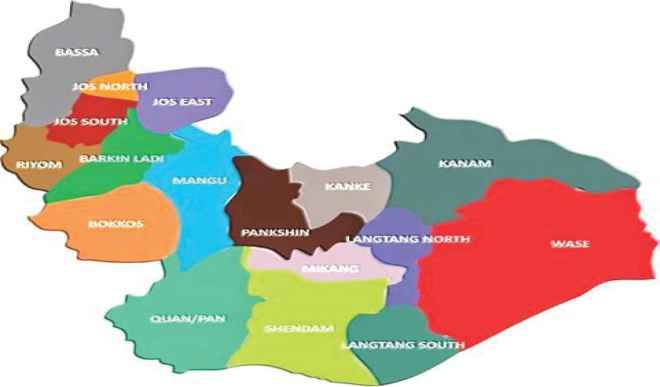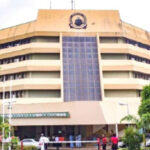
Let me tell you my story. About a month ago, herdsmen attacked and massacred people in several villages in Plateau State. More than 200 were said to have been killed in the attack said to have been provoked by the loss of 300 cows by Fulani herdsmen in the state.
I, like most people, was horrified by this and I decided to write my regular weekly column for this newspaper on it. In the course of my research to get more information on it, I read online news and reactions from groups of persons and very important individuals who also felt pained by what Afenifere called “wanton killings and official irresponsibility.” Those who reacted to it in a similar manner were senate president, Bukola Saraki. PDP national publicity secretary, Kola Ologbondiyan, Sule Lamido, former governor, Jigawa State, former President Obasanjo, Professor Wole Soyinka and Chief Goddy Uwazuruike, president-general, Aka Ikenga, among others. All these men condemned the killings in very strong terms.
A longer statement was credited to Danladi Ciroma, chairman, North-Central Zone, Miyetti Allah, allegedly justifying the killings. I took a quote from each of these people for use in my column. But space did not permit it. And so I limited my self to the four-sentence quote from the statement credited to Ciroma. I had had a piece trending on the social media sent to me by a friend for about two weeks. It was credited to Bishop Hassan Kukah of the Catholic diocese of Sokoto. I had tried several times to have cross-check with him but he was not available. I summoned it into service to show what these killings are doing to honest and patriotic Nigerians.
I sent my column, titled Because of Cows, to the editor at about 7.15 a.m. on June 29. On the morning of July 1, Mallam Kabiru Yusuf, chairman of Media Trust Limited, called me to ask if I was aware that my column had raised a swirling dust of controversy. I said I was not. He said he read the column in the print edition of the paper and that a couple of very senior journalists had called him to protest its removal from the online edition of the newspaper. I asked him if he knew what the controversy was all about. He said he did not quite know. I asked him to let me know whatever he found out about it.
I then called the editor, Lawan Danjuma Adamu, to ask if he knew what people objected to in the column. I also asked him if he was aware that the column had been pulled from the online edition of the paper. He said he did not know what the controversy was all about. He also said he does not have control over the online edition of his newspaper. I requested him to let me know whatever he found out about the controversy.
While I waited to hear from him, Mannir Dan Ali, CEO/Editor-in-Chief of the Trust group of newspapers, called me to say that the controversy had to do with a quote I took from a statement credited to Ciroma. He said Ciroma had denied it and that Premium Times had retracted it and apologised to him. It had also sacked the reporter who had reported it.
The editor-in-chief said he would put my column back on the online edition with a short sentence explaining why the denial escaped me. I thanked him.
I then called Adamu back and asked him why he did not draw my attention to the denial so I could pull out the quote. Apparently, he did not know about the denial until that Sunday afternoon. According to him, from what he found out, the denial was issued late on Friday by which time he had put his first pullout of the paper to bed.
I decided to treat the incident in this column, not because I wanted to defend myself but more importantly because nearly all the reactions were more hostile than informative. In doing so, I chose to ignore the outpouring of the bile and the bitterness in the reactions. It was as if some people had been waiting all these years to see me take the wrong step and then home in with their pent up bitterness. They called me names and ascribed to me motives that are strange to me as a journalist and as a person. I offer them my thanks and sympathy.
I was surprised that none of the reactions condemned the killings. Instead they tended to justify them as if the herdsmen had merely exercised their right of revenge. One man reminded me that I failed to mention that five herdsmen were killed. The unfeeling heart of the misguided arrogant.
I duly acknowledge the right of these people to react to the column. The right of reply is a cardinal principle in journalism. I have always faithfully respected and protected it in all the three national newspapers I had the privilege to edit. My right to speak my mind is the same right enjoyed by other people too – including the right to be insolent.
Still, I did not quite know what angered those who were so condemnatory in their reactions to my column. Was it Ciroma’s denial of the quote attributed to him or my right to take issues with the killings or the use of Kukah’s statement to buttress my argument?
Where did I go wrong? I have since found out that Ciroma granted the interview to The Nation newspaper. A smart Premium Times reporter passed it off as his own. The paper panicked after Ciroma allegedly denied it and threw him under a moving trailer. But as far as I know, The Nation, the original source of the news, has not retracted the story or apologised for it. The Nation is a credible medium of public information. I have never had cause to doubt the accuracy or the authenticity of its stories. We all learn to trust newspapers that have won our trust. I had no reasons to suspect that such an elaborate statement credited to Ciroma could have been crafted by a reporter.
No newspaper, including the best and the most prestigious newspapers in the world, is above mistakes. Newspapers rely on information fed them by newsmakers. They could be misled – and they have been; they could be lied to- and they have been; and they could be used in furtherance of propaganda – and they have. So, we are all vulnerable. But if a newspaper has the courage to stand by its story it is unfair to blame those who rely on it to expand the frontiers of public discourse.
One man advised me to always check my information. He misadvised himself. The responsibility for checking the information was that of the editor and his reporter. No one expects newspaper readers to cross check the information they read in newspapers. They are not in a position to do so any way.
In condemning the killings, I did not condemn the tribe or tribes of the killers. It is the route I do not travel. Anyone can see that these killings have gotten out of hand. The Nigerian state cannot sit pretty when its citizens are being slaughtered almost every week under whatever pretexts without consequences. We need to join hands in condemning them and assisting the government to make us safe again in our homes, our offices and on our roads. I would be shocked if some people take to gloating each time the herdsmen strike. If tribal and other primordial interests and sentiments blind some of us to the dangers that face all of us and our nation in the spate of killings in Benue, Nasarawa, Taraba, Kaduna, Zamfara, Borno and Yobe, then their claim to their Nigerianness is hollow and inauthentic.

 Join Daily Trust WhatsApp Community For Quick Access To News and Happenings Around You.
Join Daily Trust WhatsApp Community For Quick Access To News and Happenings Around You.


